The average yield for a one-year certificate of deposit is approaching a level not seen since 2009, when rates dropped below 1.00% in the wake of the global financial crisis. As the Federal Reserve works to tamp down inflation, interest rates continue to rise.
In February, the Fed increased its federal funds rate by 25 basis points, or 0.25%, raising the target range to between 4.50% and 4.75%. While the average annual percentage yield for a one-year CD is 1.58% according to CNET’s sister site, Bankrate, rates continue to climb at many banks. For now, locking in a one-year CD provides guaranteed returns, at a competitive rate, for the next 12 months.
Many of today’s CD accounts offer fixed interest rates that are generally higher than the variable rates for savings accounts, which currently average 0.23% APY, according to Bankrate. CD terms generally range from three months to five years (although some banks and credit unions offer terms as short as month or as long as 10 years).
A one-year CD offers greater flexibility to accessing your cash than, say, a five-year CD in that you can tap your money after the CD’s term expires in one year without incurring a penalty. What’s more, if interest rates continue to rise, you can keep your money in the same CD, which will have a higher APY, or put the money into a longer-term CD at an even higher rate.
Here are the best rates on one-year CDs today:
CNET’s picks for the best 1-year CD rates
| Bank | APY | Minimum deposit |
|---|---|---|
| CFG Bank | 5.00% | $500 |
| Barclays | 5.00% | $0 |
| Bread Savings | 5.00% | $1,500 |
| VIO Bank | 4.85% | $500 |
| PenFed Credit Union | 4.60% | $1,000 |
| Marcus by Goldman Sachs | 4.50% | $500 |
| Synchrony Bank | 4.50% | $0 |
| CIBC Bank USA | 4.25% | $1,000 |
| Ally | 4.25% | $0 |
| Capital One | 4.15% | $0 |
Note: Annual percentage yields, or APYs, shown are as of March 9, 2023. CNET’s editorial team updates this information regularly, typically biweekly. APYs may have changed since they were last updated and may vary by region for some products.
More details on the best 1-year CD rates
- APY: 5.00%
- Minimum deposit: $500
- Early withdrawal penalty: 90 days interest
- About the bank: CFG is a Maryland-based community bank that offers competitive rates on CDs with reasonable deposits required to open accounts, making them accessible to a wider range of savers.

 \n ","topic":"","ttag":"","searchDim":"article-body|listicle|image","variant":"article-body|listicle|image","viewguid":"","event":"listicle|image|1","correlationId":"","_destCat":"https:\/\/www.cfg.bank\/","productName":"CFG Bank","formatType":"IMAGE","location":"LIST","position":1,"sku":"","dwLinkTag":"article-body|listicle|image","selector":"#article-body #listicle-b357eefe-75fb-40e3-854b-eee39b9c4412 .itemImage","shortcodeId":"b357eefe-75fb-40e3-854b-eee39b9c4412","shortcodeType":"listicle","vendor":"CFG Bank","manufacturer":"","coupon":"","productPrice":"","quantity":""}}” rel=”noopener nofollow” target=”_blank”>
\n ","topic":"","ttag":"","searchDim":"article-body|listicle|image","variant":"article-body|listicle|image","viewguid":"","event":"listicle|image|1","correlationId":"","_destCat":"https:\/\/www.cfg.bank\/","productName":"CFG Bank","formatType":"IMAGE","location":"LIST","position":1,"sku":"","dwLinkTag":"article-body|listicle|image","selector":"#article-body #listicle-b357eefe-75fb-40e3-854b-eee39b9c4412 .itemImage","shortcodeId":"b357eefe-75fb-40e3-854b-eee39b9c4412","shortcodeType":"listicle","vendor":"CFG Bank","manufacturer":"","coupon":"","productPrice":"","quantity":""}}” rel=”noopener nofollow” target=”_blank”>


CFG Bank
- APY: 5.00%
- Minimum deposit: $0
- Early withdrawal penalty: 90 days simple interest
- About the bank: The London-based bank has a US digital operation that offers an online CD application process. The bank provides six different terms for its traditional CDs with no minimum required to open an account. CDs must be funded within 14 business days and a minimum balance, enough to earn one cent of interest, and must be maintained to earn interest. CDs automatically renew once the maturity date has passed.

 \n ","topic":"","ttag":"","searchDim":"article-body|listicle|image","variant":"article-body|listicle|image","viewguid":"","event":"listicle|image|2","correlationId":"","_destCat":"https:\/\/www.banking.barclaysus.com\/index.html","productName":"Barclays","formatType":"IMAGE","location":"LIST","position":2,"sku":"","dwLinkTag":"article-body|listicle|image","selector":"#article-body #listicle-9a65a977-7c74-45ad-b704-605a12fb6421 .itemImage","shortcodeId":"9a65a977-7c74-45ad-b704-605a12fb6421","shortcodeType":"listicle","vendor":"Barclays","manufacturer":"","coupon":"","productPrice":"","quantity":""}}” rel=”noopener nofollow” target=”_blank”>
\n ","topic":"","ttag":"","searchDim":"article-body|listicle|image","variant":"article-body|listicle|image","viewguid":"","event":"listicle|image|2","correlationId":"","_destCat":"https:\/\/www.banking.barclaysus.com\/index.html","productName":"Barclays","formatType":"IMAGE","location":"LIST","position":2,"sku":"","dwLinkTag":"article-body|listicle|image","selector":"#article-body #listicle-9a65a977-7c74-45ad-b704-605a12fb6421 .itemImage","shortcodeId":"9a65a977-7c74-45ad-b704-605a12fb6421","shortcodeType":"listicle","vendor":"Barclays","manufacturer":"","coupon":"","productPrice":"","quantity":""}}” rel=”noopener nofollow” target=”_blank”>
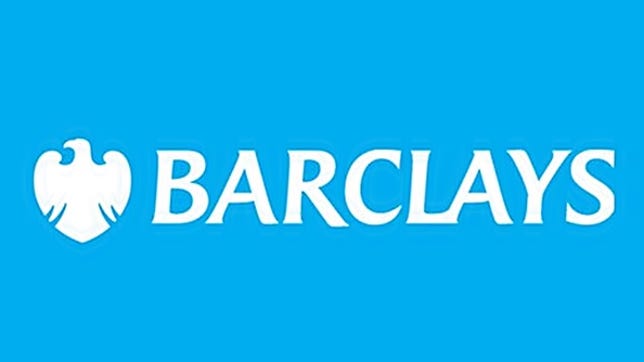

Barclays

 \n ","topic":"","ttag":"","searchDim":"article-body|listicle|image","variant":"article-body|listicle|image","viewguid":"","event":"listicle|image|3","correlationId":"","_destCat":"https:\/\/savings.breadfinancial.com\/","productName":"Bread Savings","formatType":"IMAGE","location":"LIST","position":3,"sku":"","dwLinkTag":"article-body|listicle|image","selector":"#article-body #listicle-03846c00-b378-4940-8f16-74daad48b636 .itemImage","shortcodeId":"03846c00-b378-4940-8f16-74daad48b636","shortcodeType":"listicle","vendor":"Bread Savings","manufacturer":"","coupon":"","productPrice":"","quantity":""}}” rel=”noopener nofollow” target=”_blank”>
\n ","topic":"","ttag":"","searchDim":"article-body|listicle|image","variant":"article-body|listicle|image","viewguid":"","event":"listicle|image|3","correlationId":"","_destCat":"https:\/\/savings.breadfinancial.com\/","productName":"Bread Savings","formatType":"IMAGE","location":"LIST","position":3,"sku":"","dwLinkTag":"article-body|listicle|image","selector":"#article-body #listicle-03846c00-b378-4940-8f16-74daad48b636 .itemImage","shortcodeId":"03846c00-b378-4940-8f16-74daad48b636","shortcodeType":"listicle","vendor":"Bread Savings","manufacturer":"","coupon":"","productPrice":"","quantity":""}}” rel=”noopener nofollow” target=”_blank”>


Bread Savings
- APY: 5.00%
- Minimum deposit: $1,500
- Early withdrawal penalty: 180 days simple interest
About the bank: Bread Financial formed from Alliance Data Systems, a marketing and private-label credit card company that still provides cards for such brands as Victoria’s Secret, J. Crew and Pottery Barn. Bread Savings, formerly known as Comenity Direct, is an online-only banking subsidiary that focuses on credit cards, savings accounts, loans and CDs. Bread CDs offer terms from one to five years.

 \n ","topic":"","ttag":"","searchDim":"article-body|listicle|image","variant":"article-body|listicle|image","viewguid":"","event":"listicle|image|4","correlationId":"","_destCat":"https:\/\/www.viobank.com\/","productName":"Vio Bank","formatType":"IMAGE","location":"LIST","position":4,"sku":"","dwLinkTag":"article-body|listicle|image","selector":"#article-body #listicle-0ad07d8f-6cb4-4390-9b35-6e6655a519b3 .itemImage","shortcodeId":"0ad07d8f-6cb4-4390-9b35-6e6655a519b3","shortcodeType":"listicle","vendor":"Vio Bank","manufacturer":"","coupon":"","productPrice":"","quantity":""}}” rel=”noopener nofollow” target=”_blank”>
\n ","topic":"","ttag":"","searchDim":"article-body|listicle|image","variant":"article-body|listicle|image","viewguid":"","event":"listicle|image|4","correlationId":"","_destCat":"https:\/\/www.viobank.com\/","productName":"Vio Bank","formatType":"IMAGE","location":"LIST","position":4,"sku":"","dwLinkTag":"article-body|listicle|image","selector":"#article-body #listicle-0ad07d8f-6cb4-4390-9b35-6e6655a519b3 .itemImage","shortcodeId":"0ad07d8f-6cb4-4390-9b35-6e6655a519b3","shortcodeType":"listicle","vendor":"Vio Bank","manufacturer":"","coupon":"","productPrice":"","quantity":""}}” rel=”noopener nofollow” target=”_blank”>
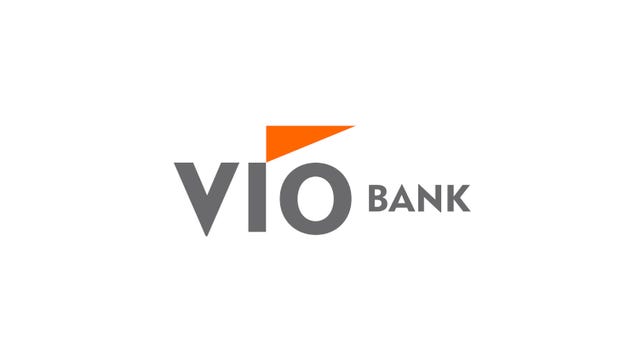

Vio Bank
- APY: 4.85%
- Minimum deposit: $500
- Early withdrawal penalty: 1% of the amount withdrawn, plus a $25 fee
- About the bank: Vio Bank is the online division of MidFirst bank that offers competitive rates on savings products. Peer-to-peer transaction tools such as Zelle aren’t compatible with this bank. Access to savings accounts is provided via online and mobile banking services.

 \n ","topic":"","ttag":"","searchDim":"article-body|listicle|image","variant":"article-body|listicle|image","viewguid":"","event":"listicle|image|5","correlationId":"","_destCat":"https:\/\/www.penfed.org\/","productName":"PenFed Credit Union","formatType":"IMAGE","location":"LIST","position":5,"sku":"","dwLinkTag":"article-body|listicle|image","selector":"#article-body #listicle-c184ae9c-9680-4780-9c6f-e879992b4b78 .itemImage","shortcodeId":"c184ae9c-9680-4780-9c6f-e879992b4b78","shortcodeType":"listicle","vendor":"PenFed Credit Union","manufacturer":"","coupon":"","productPrice":"","quantity":""}}” rel=”noopener nofollow” target=”_blank”>
\n ","topic":"","ttag":"","searchDim":"article-body|listicle|image","variant":"article-body|listicle|image","viewguid":"","event":"listicle|image|5","correlationId":"","_destCat":"https:\/\/www.penfed.org\/","productName":"PenFed Credit Union","formatType":"IMAGE","location":"LIST","position":5,"sku":"","dwLinkTag":"article-body|listicle|image","selector":"#article-body #listicle-c184ae9c-9680-4780-9c6f-e879992b4b78 .itemImage","shortcodeId":"c184ae9c-9680-4780-9c6f-e879992b4b78","shortcodeType":"listicle","vendor":"PenFed Credit Union","manufacturer":"","coupon":"","productPrice":"","quantity":""}}” rel=”noopener nofollow” target=”_blank”>
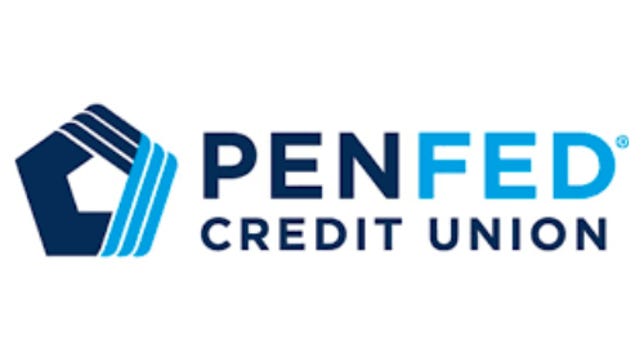

PenFed Credit Union
- APY: 4.60%
- Minimum deposit: $1,000
- Early withdrawal penalty: Up to the last 365 days of dividends earned since the account was opened
- Membership eligibility: PenFed is a credit union open to everyone. It offers a Money Market Certificate that operates exactly like a CD.
- APY: 4.50%
- Minimum deposit: $500
- Early withdrawal penalty: 90 days simple interest
- About the bank: Marcus by Goldman Sachs is the online banking arm of the New York-based multinational investment bank and financial services firm. All deposits must be electronically transferred using its mobile app because there are no branches or ATMs available.

 \n ","topic":"","ttag":"","searchDim":"article-body|listicle|image","variant":"article-body|listicle|image","viewguid":"","event":"listicle|image|6","correlationId":"","_destCat":"https:\/\/www.marcus.com\/us\/en","productName":"Marcus by Goldman Sachs","formatType":"IMAGE","location":"LIST","position":6,"sku":"","dwLinkTag":"article-body|listicle|image","selector":"#article-body #listicle-07c04cc2-2a2e-47dd-8dac-f44ff2619d2c .itemImage","shortcodeId":"07c04cc2-2a2e-47dd-8dac-f44ff2619d2c","shortcodeType":"listicle","vendor":"Marcus by Goldman Sachs","manufacturer":"","coupon":"","productPrice":"","quantity":""}}” rel=”noopener nofollow” target=”_blank”>
\n ","topic":"","ttag":"","searchDim":"article-body|listicle|image","variant":"article-body|listicle|image","viewguid":"","event":"listicle|image|6","correlationId":"","_destCat":"https:\/\/www.marcus.com\/us\/en","productName":"Marcus by Goldman Sachs","formatType":"IMAGE","location":"LIST","position":6,"sku":"","dwLinkTag":"article-body|listicle|image","selector":"#article-body #listicle-07c04cc2-2a2e-47dd-8dac-f44ff2619d2c .itemImage","shortcodeId":"07c04cc2-2a2e-47dd-8dac-f44ff2619d2c","shortcodeType":"listicle","vendor":"Marcus by Goldman Sachs","manufacturer":"","coupon":"","productPrice":"","quantity":""}}” rel=”noopener nofollow” target=”_blank”>
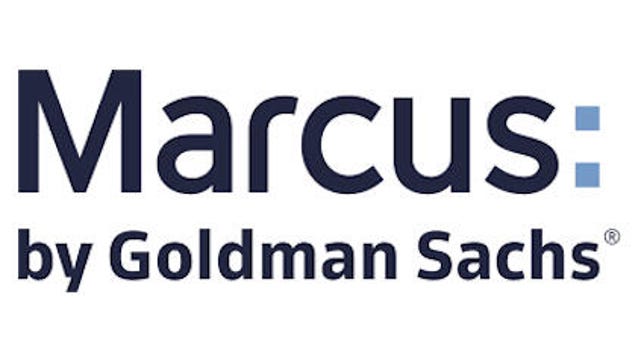

Marcus by Goldman Sachs

 \n ","topic":"","ttag":"","searchDim":"article-body|listicle|image","variant":"article-body|listicle|image","viewguid":"","event":"listicle|image|7","correlationId":"","_destCat":"https:\/\/www.synchronybank.com\/","productName":"Synchrony Bank","formatType":"IMAGE","location":"LIST","position":7,"sku":"","dwLinkTag":"article-body|listicle|image","selector":"#article-body #listicle-99714343-740b-4156-8484-5e9a631d2a8a .itemImage","shortcodeId":"99714343-740b-4156-8484-5e9a631d2a8a","shortcodeType":"listicle","vendor":"Synchrony Bank","manufacturer":"","coupon":"","productPrice":"","quantity":""}}” rel=”noopener nofollow” target=”_blank”>
\n ","topic":"","ttag":"","searchDim":"article-body|listicle|image","variant":"article-body|listicle|image","viewguid":"","event":"listicle|image|7","correlationId":"","_destCat":"https:\/\/www.synchronybank.com\/","productName":"Synchrony Bank","formatType":"IMAGE","location":"LIST","position":7,"sku":"","dwLinkTag":"article-body|listicle|image","selector":"#article-body #listicle-99714343-740b-4156-8484-5e9a631d2a8a .itemImage","shortcodeId":"99714343-740b-4156-8484-5e9a631d2a8a","shortcodeType":"listicle","vendor":"Synchrony Bank","manufacturer":"","coupon":"","productPrice":"","quantity":""}}” rel=”noopener nofollow” target=”_blank”>
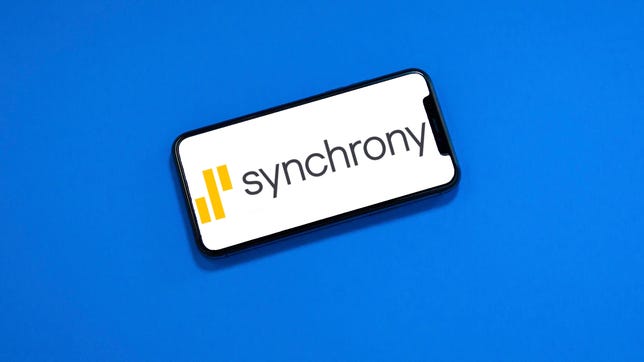

Synchrony Bank
- APY: 4.50%
- Minimum deposit: $0
- Early withdrawal penalty: 90 days simple interest at current rate
- About the bank: Synchrony is an online-only bank that takes advantage of limited overhead to offer attractive rates for deposit accounts. Transactions can be handled via its website or mobile app. Synchrony Bank also offers additional CD types such as bump-up or no-penalty CDs that provide more flexibility.

 \n ","topic":"","ttag":"","searchDim":"article-body|listicle|image","variant":"article-body|listicle|image","viewguid":"","event":"listicle|image|8","correlationId":"","_destCat":"https:\/\/us.cibc.com\/en\/agility\/certificates-of-deposit.html","productName":"CIBC Bank USA","formatType":"IMAGE","location":"LIST","position":8,"sku":"","dwLinkTag":"article-body|listicle|image","selector":"#article-body #listicle-843be492-7ddd-4121-8fb4-d19851c09bf8 .itemImage","shortcodeId":"843be492-7ddd-4121-8fb4-d19851c09bf8","shortcodeType":"listicle","vendor":"CIBC Bank USA","manufacturer":"","coupon":"","productPrice":"","quantity":""}}” rel=”noopener nofollow” target=”_blank”>
\n ","topic":"","ttag":"","searchDim":"article-body|listicle|image","variant":"article-body|listicle|image","viewguid":"","event":"listicle|image|8","correlationId":"","_destCat":"https:\/\/us.cibc.com\/en\/agility\/certificates-of-deposit.html","productName":"CIBC Bank USA","formatType":"IMAGE","location":"LIST","position":8,"sku":"","dwLinkTag":"article-body|listicle|image","selector":"#article-body #listicle-843be492-7ddd-4121-8fb4-d19851c09bf8 .itemImage","shortcodeId":"843be492-7ddd-4121-8fb4-d19851c09bf8","shortcodeType":"listicle","vendor":"CIBC Bank USA","manufacturer":"","coupon":"","productPrice":"","quantity":""}}” rel=”noopener nofollow” target=”_blank”>


CIBC
- APY: 4.25%
- Minimum deposit: $1,000
- Early withdrawal penalty: 30 days simple interest
- About the bank: CIBC Bank USA is the US arm of Canadian financial giant CIBC. Headquartered in Chicago, CIBC Bank USA offers an Agility Online CD with a tiered APY structure. You will earn a 4.25% APY on CDs below $25,000. CDs worth $25,000 or more earn a 4.30% APY.

 \n ","topic":"","ttag":"","searchDim":"article-body|listicle|image","variant":"article-body|listicle|image","viewguid":"","event":"listicle|image|9","correlationId":"","_destCat":"https:\/\/www.ally.com\/","productName":"Ally","formatType":"IMAGE","location":"LIST","position":9,"sku":"","dwLinkTag":"article-body|listicle|image","selector":"#article-body #listicle-a102a465-c04c-4eff-b962-4a7dec291d59 .itemImage","shortcodeId":"a102a465-c04c-4eff-b962-4a7dec291d59","shortcodeType":"listicle","vendor":"Ally","manufacturer":"","coupon":"","productPrice":"","quantity":""}}” rel=”noopener nofollow” target=”_blank”>
\n ","topic":"","ttag":"","searchDim":"article-body|listicle|image","variant":"article-body|listicle|image","viewguid":"","event":"listicle|image|9","correlationId":"","_destCat":"https:\/\/www.ally.com\/","productName":"Ally","formatType":"IMAGE","location":"LIST","position":9,"sku":"","dwLinkTag":"article-body|listicle|image","selector":"#article-body #listicle-a102a465-c04c-4eff-b962-4a7dec291d59 .itemImage","shortcodeId":"a102a465-c04c-4eff-b962-4a7dec291d59","shortcodeType":"listicle","vendor":"Ally","manufacturer":"","coupon":"","productPrice":"","quantity":""}}” rel=”noopener nofollow” target=”_blank”>


Ally
- APY: 4.25%
- Minimum deposit: $0
- Early withdrawal penalty: 60 days simple interest
- About the bank: Ally is another online-only bank that offers a robust set of deposit products, loans and services. The bank also offers bump-up (CDs that adjust to a higher APY if available) and no-penalty CDs. You can handle all of your banking needs through its mobile app or free via the Allpoint ATM network. There are no fees with any accounts, and 24/7 customer support via phone, chat or email.
- APY: 4.15%
- Minimum deposit: $0
- Early withdrawal penalty: Three months of interest
- About the bank: Capital One is a major online bank that also has branches in nine states across the eastern and southern US. It expanded the bank branch concept, called Capital One Café, to include a coffee shop, a meeting space open to the public (complete with snacks and free Wi-Fi) and an area for banking services.

 \n ","topic":"","ttag":"","searchDim":"article-body|listicle|image","variant":"article-body|listicle|image","viewguid":"","event":"listicle|image|10","correlationId":"","_destCat":"https:\/\/www.capitalone.com\/","productName":"Capital One","formatType":"IMAGE","location":"LIST","position":10,"sku":"","dwLinkTag":"article-body|listicle|image","selector":"#article-body #listicle-045d5370-951b-49b1-8cc9-71aa2bb428fb .itemImage","shortcodeId":"045d5370-951b-49b1-8cc9-71aa2bb428fb","shortcodeType":"listicle","vendor":"Capital One","manufacturer":"","coupon":"","productPrice":"","quantity":""}}” rel=”noopener nofollow” target=”_blank”>
\n ","topic":"","ttag":"","searchDim":"article-body|listicle|image","variant":"article-body|listicle|image","viewguid":"","event":"listicle|image|10","correlationId":"","_destCat":"https:\/\/www.capitalone.com\/","productName":"Capital One","formatType":"IMAGE","location":"LIST","position":10,"sku":"","dwLinkTag":"article-body|listicle|image","selector":"#article-body #listicle-045d5370-951b-49b1-8cc9-71aa2bb428fb .itemImage","shortcodeId":"045d5370-951b-49b1-8cc9-71aa2bb428fb","shortcodeType":"listicle","vendor":"Capital One","manufacturer":"","coupon":"","productPrice":"","quantity":""}}” rel=”noopener nofollow” target=”_blank”>
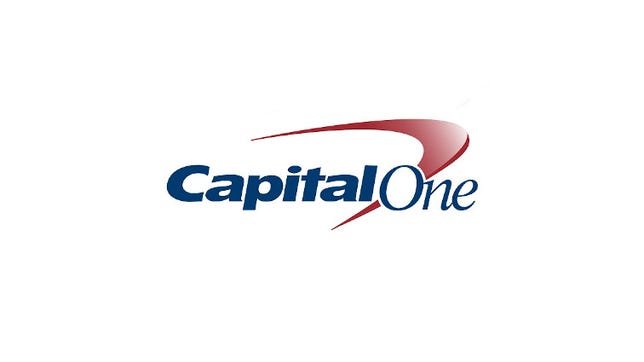

Capital One
What is a 1-year CD?
A one-year CD is a timed deposit account that earns interest over a term of one year. If you open a one-year CD in March, you’ll need to leave your money in the account, untouched, as it accrues interest until March 2024. CDs differ from savings accounts because you can’t withdraw your money during the CD’s term. If you do, you’ll be penalized with a fee or interest accrued in the account may be forfeited.
Although the national average APY for a one-year CD is 1.58%, it’s important to shop around to find the best rates and features. Upon maturity, your funds, including accrued interest, can be accessed penalty-free. CDs typically have a grace period of seven to 10 days that gives the account holder time to decide if they want to withdraw the funds, put it in another type of CD or let the CD automatically renew.
How do 1-year CDs earn money?
While banks and credit unions set their own rates, most rates are pegged to the federal funds rate — the interest rate banks and credit unions use to lend to each other. As the Fed continues to increase rates in 2023, APYs for deposit accounts such as CDs have also risen.
Depending on the compounding schedule and the frequency with which interest is added to the account balance, the account will increase based on the assigned APY. In exchange for higher yields, your deposit can’t be accessed during a fixed period without incurring penalties. Early withdrawal penalties vary among banks. Several CDs highlighted above impose a penalty of 90 days’ worth of simple interest if money is withdrawn too soon.
As interest rates continue to rise, it’s still a good time to compare the rates you’re earning on any cash parked in your savings account. If the gains from a savings account are being beaten back by inflation, a CD can help.
How to choose a 1-year CD
A one-year CD is ideal for investors looking for a fixed rate of interest with little to no risk of losing money. CDs provide an interest rate that won’t change in exchange for agreeing to invest your money for a specific period of time. Because it provides guaranteed growth, a CD could be a good option for households saving for future expenses or for a “rainy day” fund.
A one-year CD, however, may not be the right choice for every savings goal. It’s better, for example, to keep your emergency fund in an account with fewer access restrictions such as in a high-yield savings account or money market account, even if they have slightly lower APYs. If you already have an emergency fund, a one-year CD can help boost your savings toward such major expenses as a wedding or the down payment on a house.
If you know that you’ll need a certain amount of money at a specific time in the future, a CD interest calculator can help you determine how much you need to invest.
When selecting a CD account, consider the following factors:
- Minimum deposit: What is the initial deposit required to open the account?
- Term: How long are you willing to leave your money in a CD?
- APY: Look for the highest yield available for the terms you’ve selected.
- CD type: CDs are either standard or offer special features, such as a no-penalty CD, which don’t impose an early withdrawal penalty.
- Withdrawal penalties: What are the early withdrawal penalties associated with the CD you’re choosing?
- Compound schedules: How often is the interest added to the principal balance? Interest earned on CDs generally compounds daily or monthly.
- Insurance: Confirm that the financial institution is insured by the Federal Deposit Insurance Corporation (for banks) or the National Credit Union Administration (for credit unions), which covers up to $250,000 per person, per insured bank for each account.
Keep in mind, however, that a CD’s rate is fixed during its term, meaning that if you purchase a one-year CD now, and rates, for example, increase in a few weeks, you’ll lose out on the higher rate.
Pros and cons of 1-year CDs
Pros
- CDs offer consistent, fixed-rate growth.
- According to the FDIC, a one-year CD has a national average savings yield that is nearly quadruple the average annual savings rate of 0.35%. High-yield CDs provide better-earning potential.
- A one-year CD purchased through a federally-insured bank or credit union is insured by up to $250,000 per person, per account, minimizing the risk of loss of the original principal.
Cons
- The deposit will incur a penalty such as the loss of up to 365 days’ worth of interest earned if withdrawn before the CD reaches the maturity date.
- A CD is locked into the interest rate set at the time of purchase which can represent a loss of earning potential if interest rates rise.
- CDs restrict access to money that may be needed in emergencies.
Is a 1-year CD better than other investment options?
Determining whether a CD is better than a savings account depends on an individual’s goals and uses for each account. A one-year CD can provide better returns compared with savings accounts, however, access to the deposited funds will be restricted during the term. Savings accounts offer more liquidity, but your money earns less interest and can lose purchasing power more quickly during times of high inflation.
Money market accounts may offer higher rates than traditional savings accounts, but rates are still lower than CDs in most cases. A one-year CD will likely earn a larger APY, however, you won’t have access to that money for one year.
How to open a 1-year CD
A one-year CD can be purchased from most retail banks and credit unions. Some online “neobanks,” which don’t have banking charters, offer financial services that may include CDs. Because neobanks lack traditional overhead expenses such as physical branches and in-person customer service, they can pass savings onto you in the form of higher-yielding interest rates.
To open a one-year CD, complete the application process. You’ll need to verify your identity, generally with a government-issued ID like a state drivers license, and deposit at least the minimum initial deposit required to open the account. The deposit can take place in person for institutions with physical branches or through electronic transfers.
FAQs
Will 1-year CD rates go up?
As the Federal Reserve continues to tamp down inflation by increasing the federal funds rate, experts predict that CD rates will follow.
What if rates go up while I have money deposited?
If the APY offered on your CD increases after you open it, you won’t benefit from the rate increase. When you open a CD, your account is established with a fixed rate that’s set for the entire term. There are, however, types of CDs that are exceptions to this rule. For example, “bump-up” CDs may allow you to request one rate bump per CD term. You could also choose a “no-penalty” CD, withdraw your deposit at any time without incurring early withdrawal penalties and open a new CD with a higher rate.
What are the fees and penalties associated with a 1-year CD?
Fees vary depending on the institution. Some banks advertise no fees. Others charge a fee if the account is closed before a set timeframe has elapsed. Most CDs charge a penalty for withdrawing money before the maturity date has passed. The fee is generally based on a percentage of the interest earned.
Are 1-year CDs a safe investment?
Unless you are purchasing a brokered CD offered by a brokerage account, CDs purchased through a federally-insured bank or credit union are insured by the FDIC or NCUA for up to $250,000 per person, per account. Any interest earned by the CD is also covered up to insured limits.
How is the interest on a CD compounded?
Interest generally compounds either daily or monthly. Compound interest is desirable because your money will grow faster. Interest is calculated based on the accumulated interest and the original principal.
What is a jumbo CD?
A jumbo CD is a CD account that requires a significantly higher initial deposit to open, generally at least $100,000. There are a variety of terms available for jumbo CDs, they earn a fixed-rate APY and the deposit must remain in place for the duration or you’ll be faced with penalties for early withdrawal.
Methodology
CNET reviews high-yield CD accounts based on the latest information posted on bank, credit union and neobank websites. We evaluated APYs, minimum deposits, monthly maintenance fees, minimum balances and other terms and conditions for CD accounts from more than 50 organizations. We selected the CDs with the highest APYs and the best terms for banking consumers.
The banks, credit unions and neobanks we reviewed include: Affirm Savings, Alliant Credit Union, Ally, America First Credit Union, American Express High Yield Savings Account, Axos High Yield Savings, Bank of America Advantage Savings, Bank of the West, Bank5 Connect, Barclays, Bask Bank, Bread Savings, BrioDirect High-Yield Savings, Capital One 360 Checking, Charles Schwab, Chase Premier Savings, Chime, Citibank, Citizens Online Savings Account, Colorado Federal Savings Bank, Consumers Credit Union, Discover, First Internet Bank of Indiana, LendingClub, Live Oak Bank, M&T Bank, Marcus, My Banking Direct, Nationwide My Savings, Navy Federal Credit Union, NBKC, OneUnited Bank, PenFed CU, PNC, Popular Direct Select Savings, PurePoint Financial, Quontic Bank, Rising Bank, Salem Five Direct, Sally Mae Smarty Pig, Santander Bank, Synchrony, TAB Bank, TD Bank, TIAA Bank, Truist Bank, U.S. Bank, UFB Direct, Union Bank, USAA Bank, Varo, Vio and Wells Fargo.
This article includes some material that was previously published on NextAdvisor, a CNET Money sister site that was also owned by Red Ventures and which has merged with CNET Money. It has been edited and updated by CNET Money editors.
The editorial content on this page is based solely on objective, independent assessments by our writers and is not influenced by advertising or partnerships. It has not been provided or commissioned by any third party. However, we may receive compensation when you click on links to products or services offered by our partners.


